Writer and Translator Profile
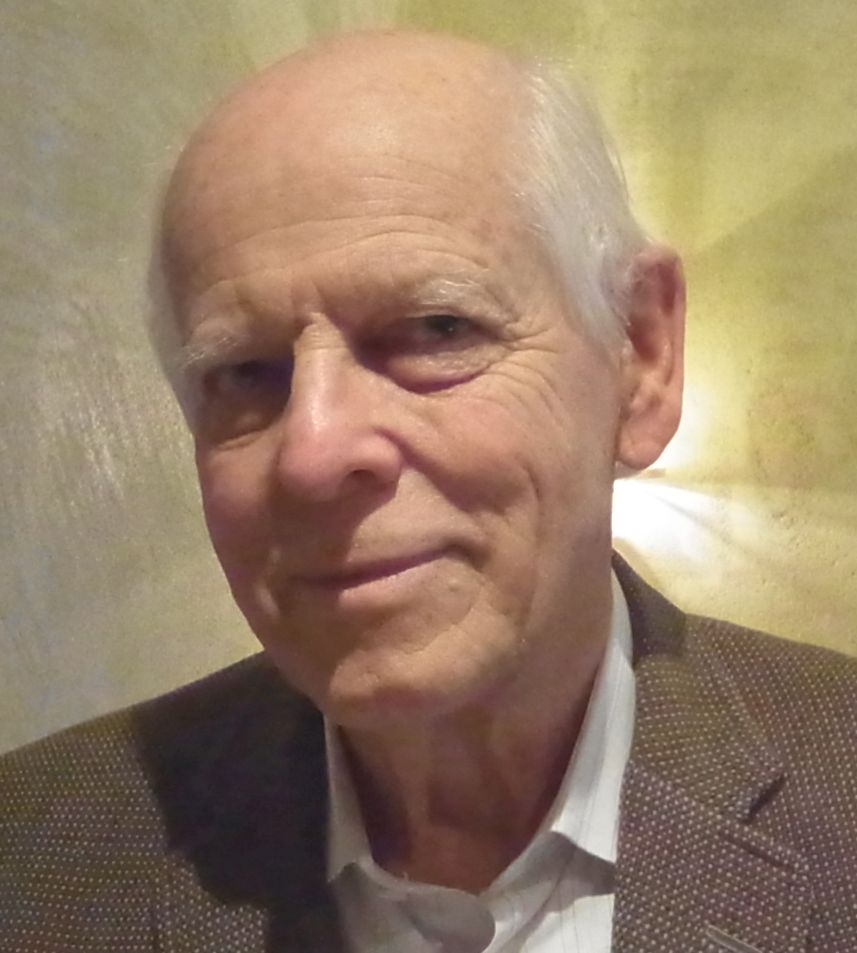
Hans Brinckmann (Writer): Born in The Hague in 1932, Hans — though keen on writing from an early age — was fated to make a career in banking. Having joined a Dutch international bank as a management trainee at the age of seventeen, he was assigned to Japan the following year, where he lived for the next twenty-four years. Appointed Tokyo branch manager at twenty-nine, he retired to Buckinghamshire in the U.K. in 1974 to write and to continue his Japanese studies. Two years later, he returned to banking and subsequently worked in Curaçao, Amsterdam and New York. In 1986 Queen Beatrix of the Netherlands made him an Officer in the Order of Orange-Nassau. In 2003 he returned to live in Japan again and in 2019 he became a permanent resident in Japan.
He has published fiction, non-fiction and poetry, including Showa Japan (Tuttle) and The Call of Japan (Renaissance books) whose Japanese translation by Hiromi Mizoguchi, entitled Watashi to Nihon no Nanaju-nen, won First Prize in the 26th Japan Self-Publishing Culture Awards in the category "Best Essay Writing" in 2023.
Hiromi Mizoguchi (Translator): Born in Tokyo, Hiromi obtained an MA from the Graduate School of Social and Cultural Studies, Kyushu University. She met Hans Brinckmann through the Japan Society in London while living there from 1999 to 2001. She has been working with Hans as his translator of his works of fiction, non-fiction, poetry and essays since 2003. Her translation works include Aru Oranda-jin no Showa Japan ron (Random House Kodansha) and Watashi to Nihon no Nanaju-nen (Nishida Shoten). She translated Hans's serialized essays which appeared in the Japanese literary magazine, Atlas, from 2014 to 2024. Five of those essays were selected and published as a book entitled, Monkey dance yokocho no shonen (Nishida Shoten).
For further information on all Hans Brinckmann's books and how to order, go to:
Amazon.com
Amazon.co.uk
Amazon.co.jp
Hans Brinckmann's books and writings
- Essays Monkey dance yokocho no shonen — Oranda jin ga kataru Senso, Yujo, Showa no hitobito (Japanese translation of The Monkey Dance and other essays by Hiromi Mizoguchi)
- Memoir The Call of Japan — A Continuing Story — 1950 to the Present Day
- Watashi to Nihon no Nanaju-nen — Orandajin ginkoka no kaisouki (Japanese translation of The Call of Japan by Hiromi Mizoguchi)
- History The Monkey Dance — Chronicle of a 12-year old Dutch boy in Winter of Starvation, 1944/1945
- Novel In the Eyes of the Son
- Fiction The Tomb in the Kyoto Hills and Other Stories
- Poetry The Undying Day — Poems by Hans Bricnkmann with Japanese translation by Hiromi Mizoguchi
- History Showa Japan, the Post-War Golden Age and its troubled legacy
- Aru Orandajin no "Showa Japan" Ron (Japanese translation of Showa Japan by Hiromi Mizoguchi)
- Fiction Noon Elusive and Other Stories
- Memoir The Magatama Doodle — One Man's Affair with Japan, 1950-2004
- Magatama moyou no rakugaki — Aru Orandajinga mita Showa no hibi (Japanese translation of The Magatama Doodle by Hiromi Mizoguchi)
The Japanese-language literary magazine Atlas, published by Nishida Shoten in Tokyo, has been featuring, since 2014, one of Brinckmann's essays in each of their half-yearly issues, in Hiromi Mizoguchi's translation.
Monkey dance yokocho no shonen — Oranda jin ga kataru Senso, Yujo, Showa no hitobito
(Nishida-shoten, 2024)
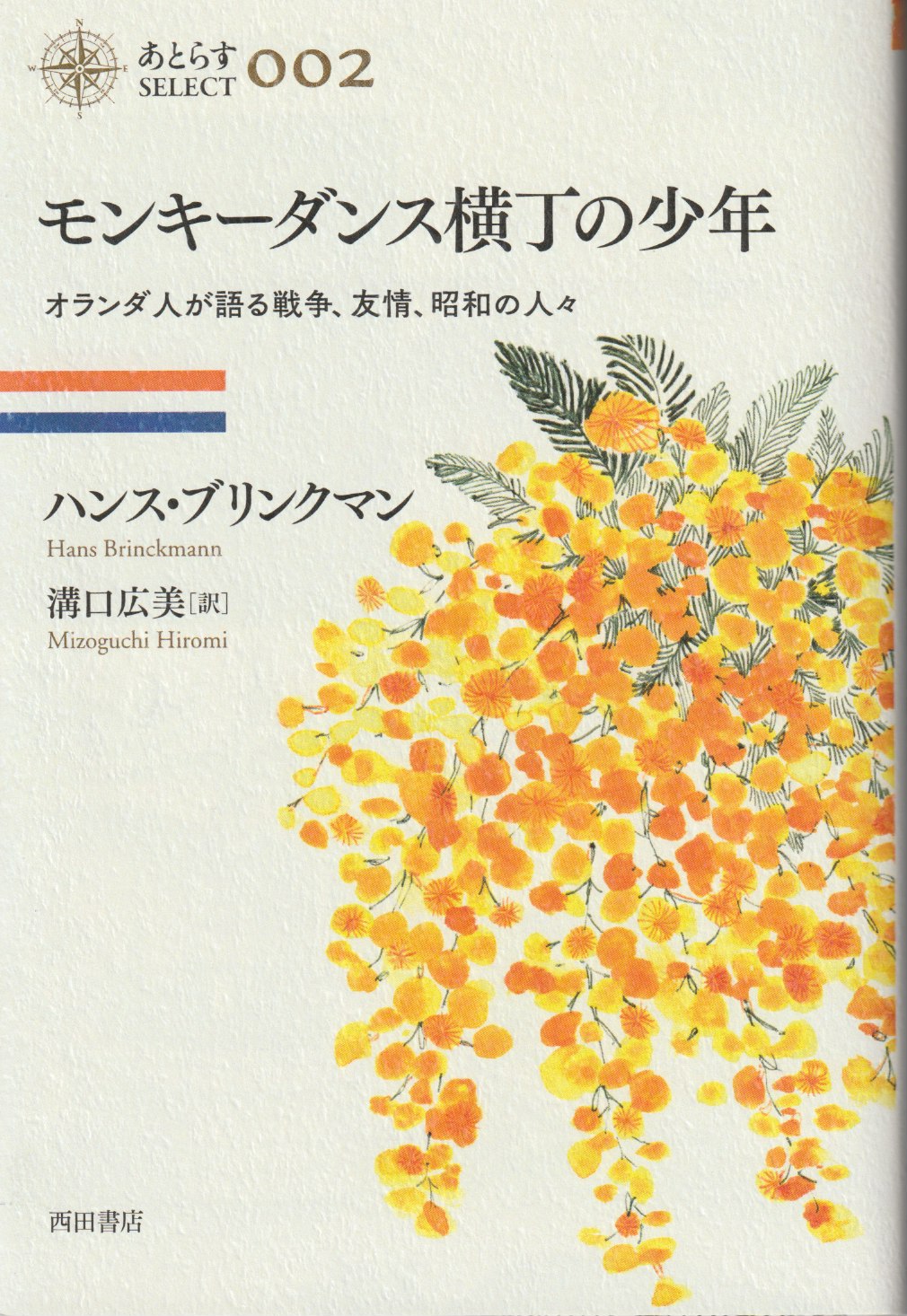
Brinckmann's book in Hiromi Mizoguchi's Japanese translation is called Monkey dance yokocho no shonen — Oranda jin ga kataru Senso, Yujo, Showa no hitobito. In English "The boy from the Monkey Dance — Tales of War, Friendship and People of the Showa era as told by a Dutchman." As for the English original, The Monkey Dance — Chronicle of a 12-year old Dutch boy in the Winter of Starvation, 1944/1945 is available as a booklet.
There are 5 essays in this book:
- The Monkey Dance - Chronicle of a 12-year old Dutch boy in the Winter of Starvation, 1944/1945 (Brinckmann's own war time experiences in Holland occupied by Nazi Germany and how he survived the 'Hunger Winter from 1944 to 1945')
- Iwaichi Waimatsu, fisherman's son and foreign bank's chief clerk (Brinckmann's friendship with 'Big W' with whom he worked at the Kobe branch of the Nationale Handelsbank)
- Shirayuri — A Life Redeemed (Brinckmann's marriage was realised against all odds thanks to a friendship of two Japanese ladies, his future wife's mother and her friend from her childhood who became a popular geisha)
- The American Senator who had just returned from space (Brinckmann's courtesy visit to US Senator Jake Garn in Washington D.C.)
- The important things I discovered in Japan (a few things about Brinckmann's real-life philosophy)
The Call of Japan - A Continuing Story 1950 to the Present Day
(Renaissance Books, UK, 2020)
Watashi to Nihon no Nanaju-nen — Orandajin ginkoka no kaisouki (Japanese translation)
(Nishida-shoten, 2022)
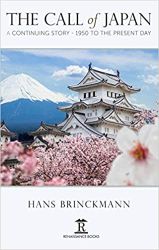
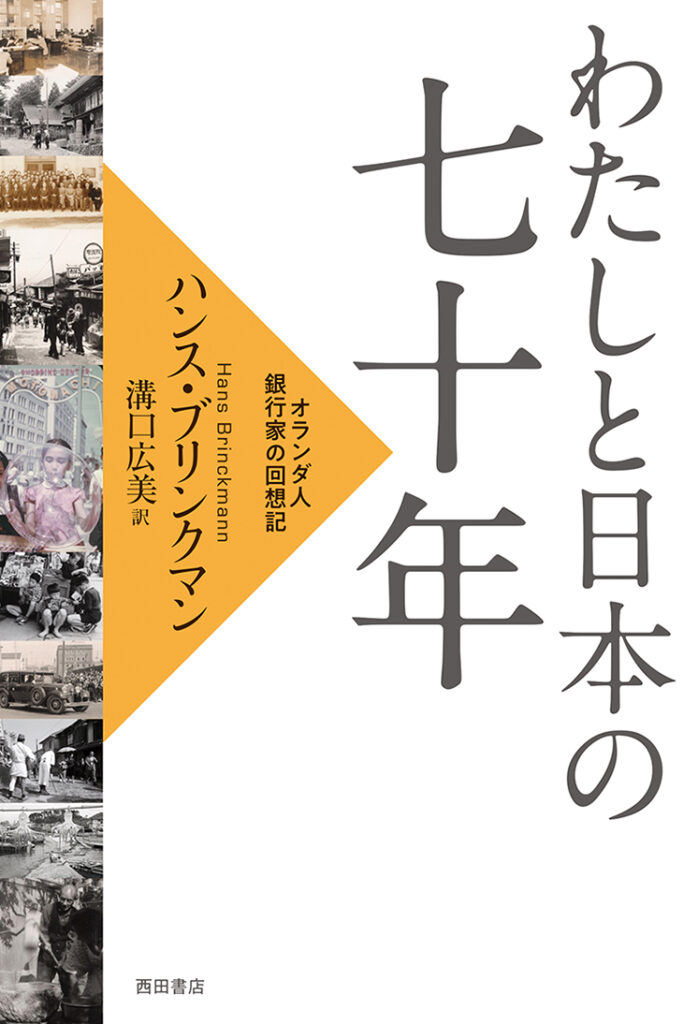
The Call of Japan in Hiromi Mizoguchi's Japanese translation entitled Watashi to Nihon no Nanaju-nen won First Prize in the 26th Japan Self-Publishing Culture Awards in the category "Best Essay Writing" in 2023
Part personal memoir, part professional flashback, part socio-cultural commentary, The Call of Japan chronicles the author's experiences during his 40 years of living in Japan, from 1950 to 1974 as a 'reluctant banker', and from 2003 to the present as a writer.
The book comments extensively on the country's economic, political and cultural realities during the crucial early years of post-war reconstruction as well as during more recent times, when the country had become one of the world's most powerful economies.
Rich in anecdotal material — often enough highly amusing — the book also delves beneath the personal story in search of the bigger picture. Neither an apologist, nor a Japan-basher, the author approaches Japan's complexities with informed respect and due care and attention, but also with well-targeted criticisms.
In the final part, he focuses on some of Japan's most serious political, environmental and social challenges as it enters in new Reiwa Era, named after the new Emperor, enthroned in May, 2019.

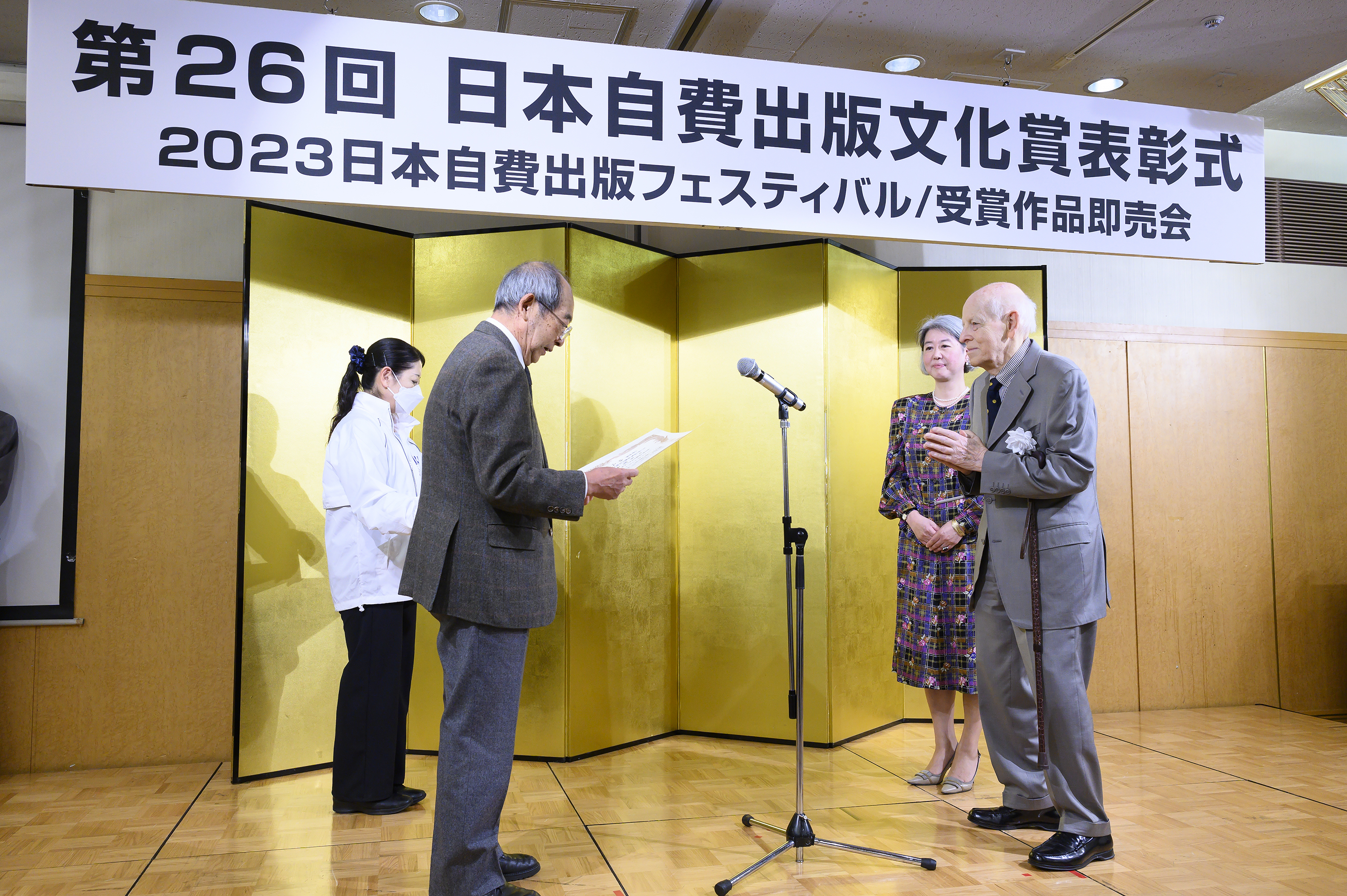
This is the certificate of commendation of The Call of Japan in Hiromi Mizoguchi's Japanese translation entitled Watashi to Nihon no Nanaju-nen. It says that Watashi to Nihon no Nanaju-nen: Oranda jin ginkouka no kaisouki written by Hans Brinckmann has won First Prize in the 26th Japan Self-Publishing Culture Awards in the category "Best Essay Writing" dated 11 November 2023 when the award ceremony was held at the Arcadia Ichigaya, Tokyo. Brinckmann and his translator Hiromi Mizoguchi attended the ceremony.
Brinckmann's acceptance speech in Japanese with English subtitles
Here is the comment by the judges.
"This book, with over 500 pages, is an extensive archive of ordinary people in Japan during the post war period, full of detailed accounts, analysis, questions and marvels of everyday life from the author's own point of view. There are numerous numbers of books on Japan or Japanese culture written by foreign writers, but what stands out in this book is the author's viewpoint, that must have been cultivated by living here as a community member of ordinary Japanese people. It is a peerless book and the book deserves the first prize."
Kazuyoshi Ishiguro, president/chairman/chief advisor of IT companies in Japan, recommended Watashi to Nihon no Nanaju-nen: Oranda jin ginkouka no kaisouki for Zaikai business magazine (2022 November 16 issue) as one of the ten books which business leaders must read to see into the essence of things.
The Japanese translation entitled わたしと日本の七十年 — オランダ人銀行家の回想記 is also available on Amazon.co.jp
Reviews of The Call of Japan
"This book is one of the ten books which business leaders must read to see into the essence of things."
For the Japan Society, by Roger Buckley — click here
For The Japan Times, by Stephen Mansfield — click here
For JapanToday, by Henry Hilton — click here
"The Call of Japan - A Continuing Story 1950 to the Present Day" is available on Amazon.
The Monkey Dance — Chronicle of a 12-year old Dutch boy in Winter of Starvation, 1944/1945
(H2H Publishers, 2017)
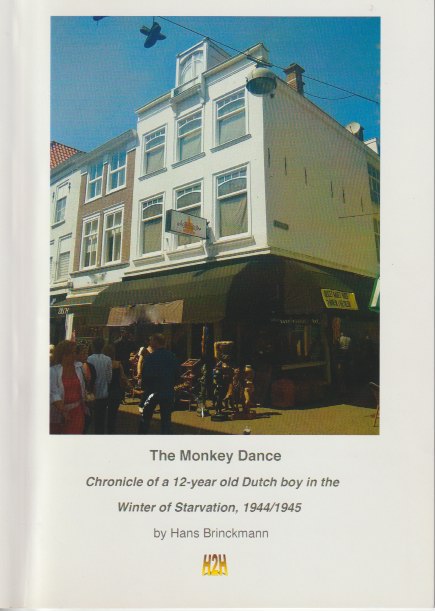
The cover photo shows the shop / house of Brinckmann's father.
The Monkey Dance is a self-published, 35-page memoir, which describes how, as a 12-year old, Brinckmann travelled several times on a boy's bicycle along a 10 km long dangerous road to the center of The Hague during the "winter of starvation," 1944-45, to visit his father who lived with his second wife above a stationery store he owned, and to collect food. The memoir describes the hair-raising events during that period, and the secrets in his father's house.
The Japanese translation by Hiromi Mizoguchi, entitled Monkey dance yokocho no shonen, is among the five essays which has been published as one book called Monkey dance yokocho no shonen — Oranda jin ga kataru Senso, Yujo, Showa no hitobito. In English "The boy from the Monkey Dance — Tales of War, Friendship and People of the Showa era as told by a Dutchman."
In the Eyes of the Son
(Savant Books and Publications, 2014)
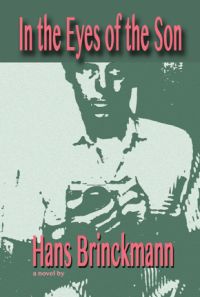
Brinckmann's sixth book and first novel, won an Honorable Mention Award at the 2015 Pacific Rim Book Festival in Honolulu, Hawaii.
The story is about Peter van Doorn, born in Holland, who dreams of life with a camera. His father, Eduard — a journalist and former WWII photographer — at first supports his son's ambition and even gives him his wartime Leica. But when Peter tries to save someone from a fatal accident instead of "capturing the moment of violent death," Eduard decides that his son lacks the guts for "real" photography, the kind he practiced during the war, the only kind of photography "worthy of a man," even in peacetime. He forces Peter into overseas banking instead.
Starting in 1953, Peter's exotic career takes him from his native Holland to Singapore and on to Chicago where he marries a socialite. But his dream never dies, and at last, in 1978, he sacrifices his stable career and family to embark on the life of a freelance photographer — in New York. Two years later, with his savings running out, an unexpected breakthrough: an exhibition on the provocative theme "White poverty in black New York." But a vicious attack disrupts this first success, leaving him to wonder how he will ever reconcile with a stubborn father with whom he's never seen eye-to-eye.
The story is a human drama, rich in dialogue, and with a healthy dose of humor and, well, 'intimacy.'
Savant Books Announces the Release of Hans Brinckmann's New Novel, "In the Eyes of the Son"
The Tomb in the Kyoto Hills and Other Stories
(Strategic Publishers, 2011)
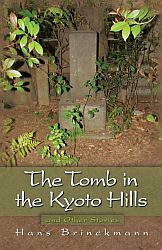
This collection of short stories, all set in Japan, won an Honorable Mention Award at the 2016 Pacific Rim Book Festival in Honolulu, Hawaii.
With this striking and highly engaging collection of stories, author Hans Brinckmann takes us into the heart of his adopted country of Japan. Highlighting the intriguing surroundings and cultural details, each story draws the reader into an extraordinary experience. The offerings include A Leap into the Light, the compelling tale of a Dutch businessman’s secretive life with the young daughter of his late Japanese mistress; Kyoto Bus Stop, about the chance encounter between a visitor from Europe and a mysterious young French woman in Kyoto; Pets in Marriage, which chronicles a Japanese married couple and their respective preference for cats and dogs, which comes to a head at the foot of Mt. Fuji; Twice upon a Plum Tree, an exploration of a Dutch diplomat's ambivalence about a Japanese woman he once loved; and the title story, The Tomb in the Kyoto Hills, about a Chicago-based lawyer who moves his family to Japan to find the truth about his origins once and for all.
"...the predominant theme...is the ambiguity of choices people make in search of a moral imperative."
The Undying Day — Poems by Hans Bricnkmann with Japanese translation by Hiromi Mizoguchi
(H2H Publishers/Trafford, 2011)
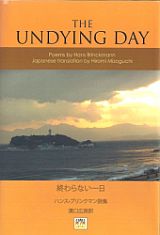
This bi-lingual selection of Brinckmann's poetry written over the past half-century in seven countries won an Honorable Mention Award at the 2016 Pacific Rim Book Festival in Honolulu, Hawaii. Hiromi Mizoguchi has rendered the poems into exquisite Japanese, shown side-by-side with the originals. The book ends with the memorable Ballad of Hope Hill, set to music and performed in The Netherlands.
A widowed water bird in an Amsterdam canal... abandoned villages 'flitting fitfully by' as he rides the Eurostar to Paris... the sun, 'averse to setting, extending the you-filled day'... such are the diverse sources of inspiration for Brinckmann's poetry. Unconstrained by locale or subject matter, his lines celebrate the marvel of love and ponder life’s irretrievable losses. He is no stranger to whimsy either, nor to the search for life's ultimate meaning.
"Consistently, Brinckmann casts himself as mediator, a conducting material recharged by the stream of time. Where some poets, even great ones, resist the vision of anything finer than a futile individual existence, Brinckmann celebrates life's brimming energies, even as they discharge into more temperate currents with the advance of age."
For the full review, "Words for All Seasons"
Showa Japan, the Post-War Golden Age and its troubled legacy
(Tuttle, 2008)
Aru Orandajin no "Showa Japan" ron (Japanese translation)
(Random House Kodansha, 2009)
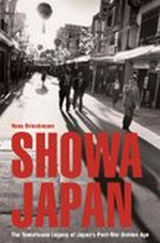
Hardcover edition (2008)
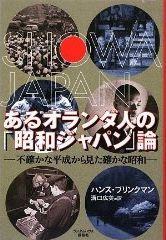
Japanese translation (2009)
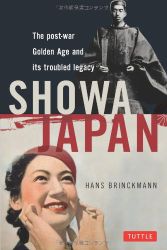
Paperback edition
An examination of Japan's rise from defeat to prosperity during the post-war period (1950-1989), the spectacular collapse of its bubble economy at the end of Showa, and the often agonizing restructuring of its economy and society since then. The book considers some of the options open to Japan as it tries to come to terms with the very different realities facing it in the globalized world of today.
"Showa Japan is a gentle exercise in nostalgia and a balanced critique of what went right and wrong during Japan's so-called 'golden age.'"
"Brinckmann's unique perspective — not soldier, diplomat nor educator — along with his talents as storyteller and photographer, make this book a standout.
"... a work of eminently readable journalism, but also of scholarly scope, an engaging mix of analysis and memoir... When you read Brinckmann's description of the 1960s' demos in Tokyo you know the writer is a witness to the facts of history..."
"Hans Brinckmann says many Japanese are falsely nostalgic for the post-war era, clouding their vision for the future"
"Author and former Club Member Hans Brinckmann reveals how he shaped the memories of his more than two decades in Japan into a book, Showa Japan: The Post-War Golden Age and Its Troubled Legacy."
Interview: Hans Brinckmann by A J Taylor, Ambassadeur foreign Affairs Magazine, April/May 2009
"...this volume will provide a fascinating insight into a nation whose collective drive and prodigious growth defied Western expectations just as it did in the Meiji era..."
"...interesting, because it raises fundamental questions about how Japan may develop in the twenty-first century... There is plenty of food for thought by the Japanese in this book..."
Aru Orandajin no "Showa Japan" ron (Random House Kodansha, 2009), the Japanese translation by Hiromi Mizoguchi, also received positive reviews.
"Brinckmann — who shares the post-war experiences through the eyes of a European — sounds a warning about looking back on the Showa era with nostalgia."
"The year 2009 is the 400-year's anniversary of commercial ties between Japan and the Netherlands — the country where Brinckmann came from. A unique view of Showa which has escaped the attention of most Japanese people"
"An analytical book about the Showa era and Japanese national and cultural identity that no-one else can write."
("Kobe Shimbun" of January 9, 2010)
Noon Elusive and Other Stories
(H2H Publishers/Trafford, 2006)
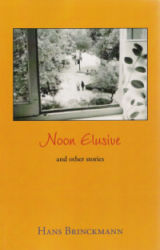
This is a cosmopolitan collection of seven short stories. An American architect in Paris, a Balkan parachutist, a Dutch diplomat in Japan, a New York heart surgeon, an English undertaker — the characters are as colorful as they are diverse. What they have in common is that they are all in the throes of personal crisis — mild and manageable, or severe and harrowing. Consciously or not, they are in search of the high noon of life.
"The characters... are neither masters of their fate nor captains of their souls; rather they have become unanchored by some chance event that forces them to make a decision...Contains some crackling good writing."
"Brinckmann's measured tone [and] understated humor makes this book a delightful, yet thought — provoking read."
The Magatama Doodle — One Man's Affair with Japan, 1950-2004
(Global Oriental, UK, 2005)
Magatama moyou no rakugaki — Aru Orandajinga mita Showa no hibi (Japanese translation)
(Shinpusha, 2005)
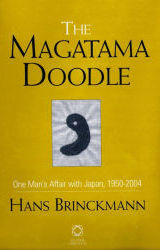
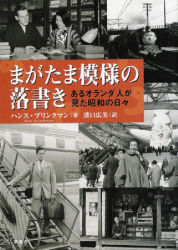
Brinckmann's account of his long involvement with Japan, half that time as a resident. It is part personal memoir, part professional flashback, part commentary on Japanese society and culture. The publisher: 'Rich in anecdotal material — often highly amusing — the book also delves beneath the personal in search of the bigger picture.'
Hiromi Mizoguchi's Japanese translation of The Magatama Doodle has been simultaneously published by Shinpusha. It is entitled Magatama moyou no rakugaki — Aru orandajin ga mita Showa no hibi and received 8 positive reviews the prominent newspapers and magazines.
"An engrossing, enchanting and illuminating account of the postwar years in Japan."
"...his thoughts on Japan are more convincing than those of any other commentator, because Hans witnessed first-hand how Japan recovered from defeat. He lived through that period as a young man."
("Asahi Shimbun" of April 24, 2005)
In January 2006, Hazuki Saisho selected the book for the Misuzu literary journal as one of her five favorite titles of the previous year. Her reasons include these words:
"A great book. Strongly recommend it to everybody regardless of his or her literary taste!"
"Just like Yoshida Kenko's Tsurezuregusa and Kamono Chomei's Hojoki, this book is filled with a deep sense of reflection and the passage of time. It is certainly an unusual and most readable memoir."
"Brinckmann found Japan's aesthetic in Zen and discovered its 'hidden beauty.'"
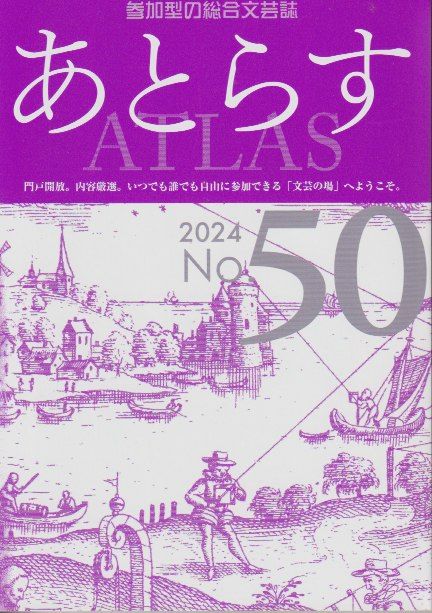
The Japanese literary magazine Atlas has been publishing — in every half-yearly issue since July 2014 — Hiromi Mizoguchi's translation of Brinckmann's essays. Its July 2024 issue No.50 featured "The important things I discovered in Japan." This is the introductory concept of Brinckmann's life-long belief in how to adapt one's inner balance to ever-moving conditions.....
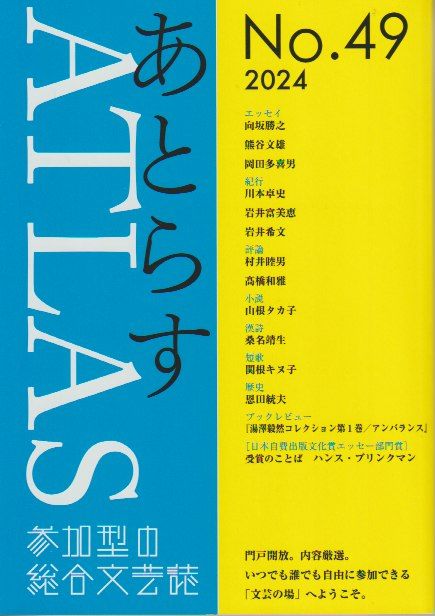
Hans Brinckmann's book The Call of Japan in Hiromi Mizoguchi's Japanese translation won First Prize in the 26th Japan Self-Publishing Culture Awards in the category "Best Essay Writing." The Japanese title of the book is Watashi to Nihon no Nanaju-nen meaning "Me and Japan over 70 years" and has been published by Nishida Shoten in Tokyo.
In its January 2024 issue No. 49 of the Japanese literary magazine Atlas reported the acceptance speeches delivered by Brinckmann and Mizoguchi during the award ceremony which was held at the Arcadia Ichigaya, Tokyo, on 11 November 2023.
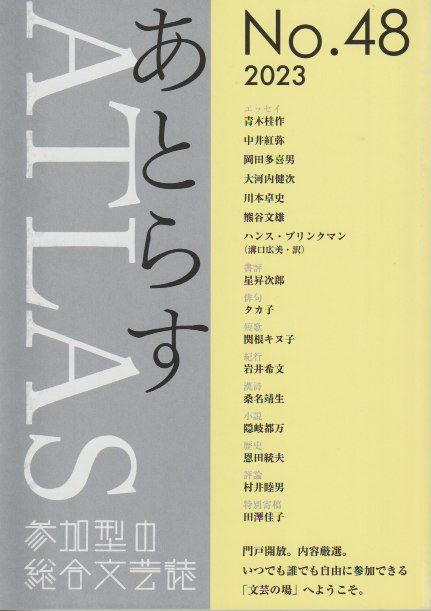
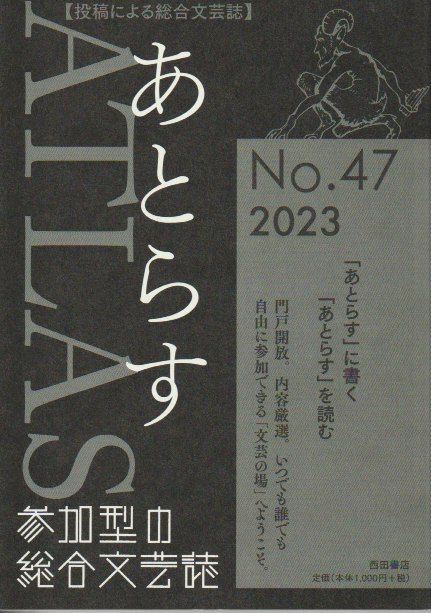
The Japanese literary magazine Atlas has been publishing — in every half-yearly issue since July 2014 — Hiromi Mizoguchi's translation of Brinckmann's essays. Its January 2023 issue No.47 and July 2023 issue No.48 featured Brinckmann's memoir of the 1944/45 the winter of starvation, entitled The Monkey Dance — Chronicle of a 12-year old Dutch boy in the Winter of Starvation, 1944-1945. Brinckmann depicted his own war time experiences in Holland occupied by Nazi Germany and how he survived the 'Hunger Winter in 1944 to 1945'
The memoir was earlier self-published in English. Anyone wishing to buy a copy of the memoir should send an email to info+habri.jp (change + into @ before sending your message).
Its original Dutch text is now available as an online version that can be found by clicking on this link: https://oorlogsverhalen.com/oorlogsverhalen/hans-brinckmann/
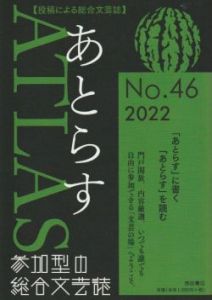
The Japanese literary magazine Atlas has been publishing — in every half-yearly issue since July 2014 — Hiromi Mizoguchi's translation of Brinckmann's essays about remarkable people he had met. Its July 2022 issue No.46 featured Brinckmann's essay about Haramoto Tomio, a Japanese student who, in 1957, had launched a 20-page Juen Shishu, meaning Ten Yen Anthology of Poems. It was a very modest venture, started by four young people: a welder, a typist and two students, with Haramoto as the driving force. The poems, in free verse, were written by ordinary Japanese—labourers, fishermen, office workers, children.
Some of the poets were physically handicapped. Brinckmann was impressed by Haramoto’s warm-hearted project, and decided to make a small donation. This led to a personal meeting and he was drafted to produce an English edition of the magazine.
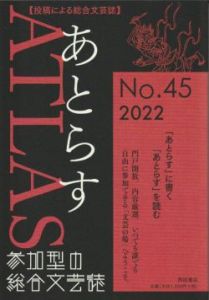
The Japanese literary magazine Atlas has been publishing — in every half-yearly issue since July 2014 — Hiromi Mizoguchi's translation of Brinckmann's essays about remarkable people he had met. Its January 2022 issue No.45 featured Brinckmann's essay about the famous writer and translator of Japanese literature Edward G. Seidensticker whom he first met in Kyoto in 1957 under highly unusual circumstances.
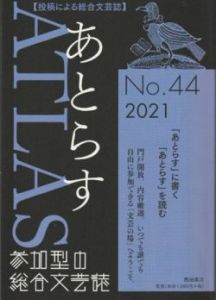
The Japanese literary magazine Atlas in its July 2021 issue No. 44 published Hiromi Mizoguchi's translation of Hans Brinckmann's essay entitled Shirayuri — a Life Redeemed. It is the life story of Shirayuri, a Japanese lady in Kyoto, who introduced Hans in 1958 to Yoshida Toyoko, who was to become his wife the following year. It covers Shirayuri's life from a young age — when she became a playmate of Toyoko's mother — through her long years of serving as a geisha and experiencing serious setbacks, until her peaceful end in 1962. It is the longest of the 13 essays that appeared in Atlas so far, and attracted much acclaim.
It will eventually appear in Hans' collection of memorable people he has met in the course of his life.
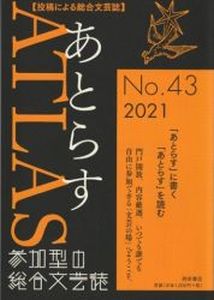
The Japanese literary magazine Atlas in its January 2021 issue No. 43 published Hiromi Mizoguchi's translation of Hans Brinckmann's essay about Norman Carver, a fascinating American Architect, Photographer and Writer, from Kalamazoo, Michigan, whom he met on the Angkor Wat Temple in Cambodia in 1964, and with whom he stayed in touch over the years. A famous Japanese movie director got inspiration from one of Norm's photobooks.
It will eventually appear in Brinckmann's collection of memorable people he has met in the course of his life.
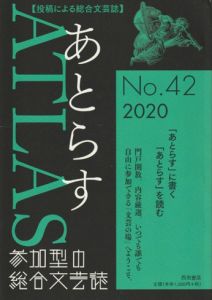
The Japanese literary magazine Atlas in its July 2020 issue No. 42 published Hiromi Mizoguchi's translation of my essay about Iwaichi Waimatsu, fisherman's son & foreign bank's chief clerk, a memorable former colleague of mine in the 1950s and 60s. Mr. Waimatsu, called "Big W" by the Dutch staff, was the first member of the Japanese staff Brinckmann was introduced to when he arrived in November 1950 at the Kobe branch of a Dutch bank. He was 18 at the time, and learned much from Big W.
The chief editor of Atlas called the essay a "eulogy for Mr. Waimatsu." It will eventually appear in Brinckmann's collection of memorable people he has met in the course of his life.
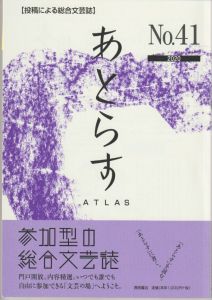
The Japanese literary magazine Atlas in its January 2020 issue No. 41 published Hiromi Mizoguchi's translation of Hans Brinckmann's essay about his old friend Janwillem van de Wetering, Zen student, policeman, and celebrated crime writer.
It is the lead article in this issue.
The essay will eventually appear in Brinckmann's collection of memorable people he has met in the course of his life.
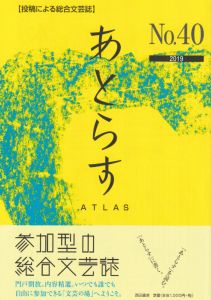
The Japanese literary magazine Atlas in its July 2019 issue No. 40 published Hiromi Mizoguchi's translation of my essay Cactus Soup and Divi-divi Trees. It is about reminiscences of life on the Caribbean island of Curaçao, from 1976 to 1979. What did Hans Brinckmann and his wife Toyoko discover on the "island of healing?" The essay — including illustrations — covers 10 pages, and is the lead article in this issue.
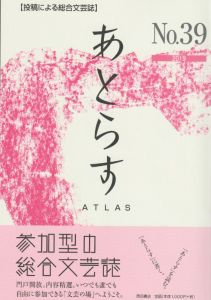
The Japanese literary magazine Atlas in its January 2019 issue No. 39 published Hiromi Mizoguchi's translation of Hans Brinckmann's story, Twice upon a Plum Tree. The story first appeared in The Tomb in the Kyoto Hills, an award-winning collection of five stories all set in Japan.
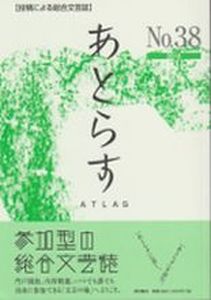
The Japanese literary magazine Atlas in its July 2018 issue No. 38 published Hiromi Mizoguchi's translation of Hans Brinckmann's essay about a memorable visit he received shortly before the 1964 Tokyo Olympics by Edmund ("Eddy") de Rothschild, a prominent London banker and horticulturist.
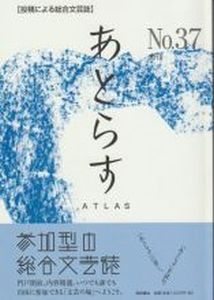
The Japanese literary magazine Atlas in its January 2018 issue No. 37 published Hiromi Mizoguchi's translation of Hans Brinckmann's essay about his meeting in Washington D.C. in 1985 with Republican Senator Jake Garn, who had just returned from space as the first U.S. member of Congress to fly on a Space Shuttle.
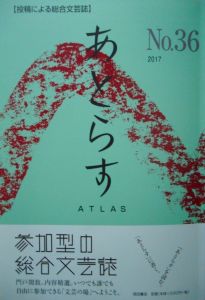
Atlas No. 36 published in July 2017 features an essay by Hans Brinckmann, entitled No Barrier Between Us!: A chance meeting with Dr. W. F. Hilton, famous aeronautical and space scientist in Hiromi Mizoguchi's translation. Brinckmann writes about a talk he had with this fascinating scientist on a long flight from Sydney to London in 1995.
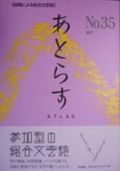
Atlas no. 35 published in January 2017 includes Hiromi Mizoguchi's translation of Hans Brinckmann's short story, Pets in Marriage, an ironic treatment of the different affections for their pets between dog lovers and cat lovers. The story first appeared in The Tomb in the Kyoto Hills, an award-winning collection of five stories all set in Japan.
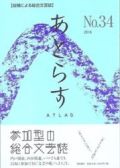
Atlas no. 34 published in July 2016 features another of Hans Brinckmann's essays in Hiromi Mizoguchi's translation. Its title is: The Lady on the Coin: my two memorable encounters with Beatrix of the Netherlands. The essay is a a report on Brinckmann’s two meetings with the remarkable Beatrix, the first in Tokyo in 1963, when she was still Crown Princess, the second in The Hague in 1987, as Queen Beatrix
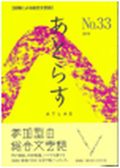
Atlas No. 33 published in January 2016 features an essay by Hans Brinckmann, entitled Reischauer in Aburatsubo in Hiromi Mizoguchi's translation. Its subject is Edwin O. Reischauer, a famous Harvard Japanologist and John F. Kennedy's ambassador to Japan from 1961 to 1966 who Brinckmann met on a few memorable occasions.
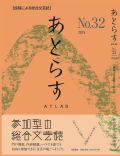
To mark the 70th anniversary of the end of the Second World War and the Pacific War, Brinckmann has written an autobiographical essay, entitled Of Guns and Cutlery, based on his memories of wartime Holland and post-war Japan. Its Japanese translation by Hiromi Mizoguchi appeared in the July 2015 edition of Atlas.
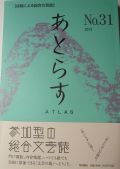
Hiromi Mizoguchi's translation of another essay by Hans Brinckmann was included in Atlas, Issue No. 31, published in January, 2015. The subject of the essay this time is the founder of Panasonic, and its title: A memorable evening with Konosuke Matsushita: his hidden acting talent. It is based on a home party in Tokyo Brinckmann attended in January 1967, where something extraordinary happened.
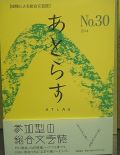
Hiromi Mizoguchi's translation of Hans Brinckmann's essay, Tapestries for the Empress, appeared as the lead piece of Atlas July 2014 issue. It is the story of Stefan Lubienski, a Polish count Brinckmann met in 1961 when he was already in his seventies. He had studied music in Vienna, but was interested in Eastern religions, and wanted to go to Japan. Having no financial means, he moved to Paris to learn how to weave tapestries, as he had been told he could make a living in Japan that way. Two years later he and his newfound wife moved to Japan by ship, where he managed to eke out a living weaving tapestries, some of which were even bought by the Empress!